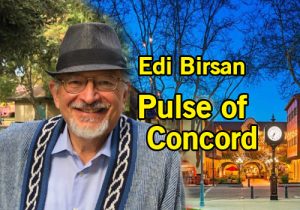Update on Contra Costa County’s restorative justice program
 CONTRA COSTA COUNTY, CA (Oct. 23, 2023) — On Oct. 3, District Attorney Diana Becton gave a presentation on the Neighborhood Restorative Partnership rolled out in Central County in the last year and half.
CONTRA COSTA COUNTY, CA (Oct. 23, 2023) — On Oct. 3, District Attorney Diana Becton gave a presentation on the Neighborhood Restorative Partnership rolled out in Central County in the last year and half.
The diversion program for non-violent crimes committed by adults is mostly focused on low-level crimes. But according to Becton, it could be used for a felony theft cases whose threshold is $900+. An example would be a person who went into a store with a younger sibling with intent to steal.
The D.A.’s office reviews individuals to determine if they are suitable for the process. The county then offers them the choice of going before a panel whose focus is to be “restorative” to the community and the criminal or go to court. If they go through this program, they will have no criminal record of the incident. I was surprised to hear that some may elect not to use this option.
The panel includes three individuals who on priority are from the community where the crime was committed. The county trains the volunteer panelists. Currently, 27 panelists have completed the training. Eight are Concord residents, and 26 others are in the process.
The demographics of the panelists are diverse in gender and ethnicity, though there is an age bias toward being older than 40-45, according to a participant.
Not a trial
The panel meets by Zoom, and the county doesn’t plan any face-to-face meetings. The meetings are not open to the public. The victim may appear or may write a letter to the panel stating their damages. The panel is not to determine if the crime was committed, as this is not a trial.
The panel spends about two hours with the arrestee, focusing on what drove them to do it and what can be done to redirect them.
In some cases, that may mean writing a letter of apology. In others, it may be job skill training at Diablo Valley College.
Financial restitution is possible, but since many of these crimes are against companies, they tend not to appear. The panel’s focus is on the arrestee in practice.
Once the arrestee agrees with the panel’s recommendation, the D.A.’s office is responsible for enforcement of the agreement and whatever notifications are to be made.
Moving forward
Reviewing the experience of about eight cases, the resolutions were very much about what the arrestee is willing to do to go forward and not wind up back in the system.
I do not have records of what cases they have seen, the nature of the crimes or the compilation of the resolutions, but I hope to get that as we go along and see what happens.
I strongly urge anyone who is a victim of a crime where there has been an arrest to ask if there is going to be a recommendation to the Neighborhood Restorative Partnership program and to get involved directly in the discussions and take an active role in the resolution.
This county process is new and does not have a relevant track record yet. There is a plan for a three-year review, though Becton says they are satisfied with what they see so far and have not gotten any push-back from law enforcement/police. When asked, she said there is not a backlog of cases.
This has the potential to provide a positive outcome all round, and we do not want it to be an opportunity lost. Over time, I hope the process is refined to increase its effectiveness. This will mean keen selection of participant arrestees and intense follow-ups. We will see.
They are actively seeking more panelists. Write to Janet Era at DA-NRP@ContraCostaDA.org.
Please take my most recent survey at www.PulseOfConcord.com.
Edi Birsan is a member of the Concord City Council. However, opinions expressed in this column are his alone and do not reflect those of the city. Send comments and questions to EdiBirsan@gmail.com.
